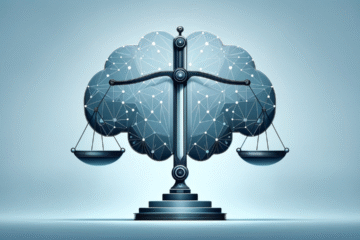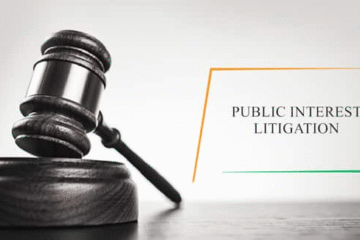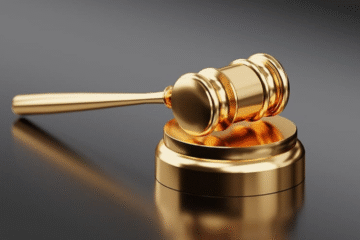
This article is written by Shivangi Raj of 4th Year of Chanakya National Law University, an intern under Legal Vidhya
ABSTRACT
The history and significance of the Directive Principles of State Policy (DPSP) in the Indian Constitution are explored in this comprehensive overview. The DPSP, initially inspired by the Irish Constitution, were included in the Indian Constitution as non-enforceable but fundamental principles aimed at achieving social, economic, and political justice.
The distinction between the justiciable Fundamental Rights and the non-justiciable DPSP is highlighted, with DPSP representing positive obligations of the state.
The DPSP’s role in promoting social and economic democracy is discussed, with a focus on the Preamble’s vision of justice, liberty, equality, and fraternity. Dr. B.R. Ambedkar’s perspective on the interdependence of political, social, and economic democracy is emphasized in this article.
Furthermore, this article categorises DPSP into three ideological sources: Socialist, Gandhian, and Liberal-Intellectual Principles. Each category contains specific directives aimed at achieving different social and economic goals.
The judicial and parliamentary roles in interpreting the relationship between Fundamental Rights and DPSP has also been examined. While DPSP are considered subsidiary to Fundamental Rights, some court cases have recognized their importance in decision-making.
The evolution of DPSP into Fundamental Rights is discussed through key court cases such as JP Unni Krishnan v State of Karnataka and MH Hoskot v State of Maharashtra, where certain DPSP principles were treated as Fundamental Rights.
The objectives to this article are as follows-
- To emphasizes the role of DPSP in promoting social justice, economic equality, and the overall well-being of Indian citizens, even though they are not directly enforceable in courts.
- To highlight the evolving interpretation of DPSP by the judiciary, which has occasionally treated them as Fundamental Rights to ensure their implementation.
KEYWORDS
DPSP, non-enforceable right, non-justiciable right, political democracy, social democracy, directive principles, instrument of instruction, positive obligation.
INTRODUCTION
In 1935, DPSP were enumerated as ‘instrument of instructions’ in the Government of India Act, 1935.[1] The idea of DPSP was adopted from the Irish Constitution. In 1945 Sapuru Committee submitted its report. The Committee engaged with the issue of dividing rights into justiciable and non-justiciable rights.[2]The right which is justiciable is said to be the Fundamental Rights and the right which is non justiciable is said to be the Directive Principles of State Policy. Thus, this report can be seen as a constitutional antecedent document which suggested for the division of individual rights into two categories, one of which is the DPSP and the other being the fundamental rights.
While the issue of incorporation of DPSP was debated in constituent assembly, some hon’ble members objected to calling it rope of sands and mere morality. Dr. BR Ambedkar gave an answer that the framing of the constitution has two- fold purpose-
- To lay down the form of political democracy.
- To lay down that our ideal is economic democracy and also to prescribe that every government whatsoever be in power shall strive to bring about economic democracy.
DPSP AS A NON- ENFORCEABLE RIGHT
The courts provide for binding and enforceable rights. The constitution may contain provisions which are binding but non enforceable. Non enforceable and non-justiciable yet fundamental to the governance, DPSP contains what may be described as positive obligation[3] of the states. It is contained in Part IV of the Constitution ranging from Article 36 to 51. Being non enforceable the implementation or obedience of DPSP cannot be assured by the court of law through judicial proceedings. But at the same time being fundamental in the governance of the country it shall be the duty of the State to apply these principles in the making of laws. This can be very well gathered from Article 37 of the Constitution which talks about the application of the principles contained in Part IV of the Constitution which speaks of the general principles as to the nature of DPSP. Contrasting with Article 32 it speaks that the provisions contained in this part shall not be enforceable by any court but the principles therein laid therein are nonetheless fundamental in the governance of the country and it shall be the duty of the state to apply each principle in making such laws.
Based on enforceability we can say that the primary difference between Part III and Part IV of the Constitution is that under Part III rights are guaranteed but Part IV does not speak of any guarantee. It means Part III rights can be enforced by the court as a matter of right whereas Part IV rights cannot be enforced as a matter of right. Part III has sanctioned rights as its nature is negative. Part IV rights are positive rights which requires from the state to do something.
DPSP- A PROMOTER OF SOCIAL AND POLITICAL DEMOCRACY
In the words of the preamble the objective of the Constitution is to secure to all its citizens: JUSTICE, social, economic and political;
LIBERTY of thought, expression, belief, faith and worship;
EQUALITY of status and of opportunity;
and to promote among them all
FRATERNITY assuring the dignity of the individual and
the unity and integrity of the Nation.
Thus social, economic and political democracy has been envisaged in the Preamble of the Constitution as social, political and economic justice while ensuring equality, liberty and fraternity among all.
The political democracy is ensured and promoted by the Fundamental rights whereas social and economic democracy are promoted by the Directive Principles of State Policy. Babasaheb Dr. B.R. Ambedkar, the Chief Architect of Indian Constitution firmly believed that our political democracy must stand on the base of social democracy which means a way of life which recognizes liberty, equality and fraternity as the principles of life.[4]This trinity of liberty, equality and fraternity ensures social justice. Economic democracy means economic equality, equitable distribution of wealth, decentralisation of economic resources and securing adequate earning opportunity to all. Political democracy means that all citizens should have equal political rights and equal, free and fair opportunities to all for participation in political process. Without social democracy there could be no sure and stable politics. Therefore, DPSP becomes relevant in the sense that it promotes social justice. The framework of democracy laid down in the Constitution is of no value and would indeed be a misfit if there was no social and economic democracy that is ensured by the Directive Principles of State Policy. These principles lays are the wrap and woof of socio- economic democracy in India.
CLASSIFICATION OF DIRECTIVE PRINCIPLES
The Directive Principles of State Policy can be categorised on the basis of their ideological sources. These ideological sources are as follows: –
- Socialist Principles
- Gandhian Principles
- Liberal and Intellectual Principles
Directives based on Socialist Principles
Article 38 speaks of the commitment of the state to secure social order for the welfare of the people. The state shall strive to promote the welfare of the people by securing and making endeavour to eliminate inequalities in status, facilities and opportunities not only among the individuals but amongst the groups of the people residing in different areas or engaged in different avocations.
The state is committed to ensure a social order as to provide justice- social, economic and political.
Article 39 provides for certain principles of policy that needs to be followed by the State. These are as follows-
- That the citizens have right to an adequate means of livelihood.
- That the ownership and control of material resources of the communities are so distributed that it subserves the common good. The Constitution speaks of distributive justice.
- That the operation of economic system does not result in the concentration of wealth and means of production through common detriment.
- It shall ensure equal pay for equal work for both men and women.
- Health and strength of workers, men and women and children are not abused and its citizens are not forced through economic necessities to enter avocations unsuited to their age or strength.
- That children are given opportunities and facilities to develop in a healthy manner and in conditions of freedom and dignity and that childhood and youth are protected against exploitation and against moral and material abandonment.
Article 41 speaks of right to work, right to education and right to public assistance in certain cases.
Article 42 provides for making provisions for just and humane conditions of work and maternity benefit.
Article 43 provides for living wages.
Article 43A was added by 42nd amendment and provides for the state to take steps to ensure participation of workers in the management of industries.
Article 47 provides for the duty of the State to raise the level of nutrition and the standard of living and to improve public health.
Directives based on Gandhian Principles
Article 40 speaks of organisation of village panchayats
Article 43 provides for living wages.
Article 43B was added by 97th Amendment and it provides for promotion of co- operative societies.
Article 46 lays the duty of promotion of educational and economic interests of Scheduled Castes, Scheduled Tribes and other weaker sections.
Article 47 provides for the duty of the State to raise the level of nutrition and the standard of living and to improve public health.
Article 48 is a directive to the state to endeavour to organise agriculture and animal husbandry on modern and scientific lines.
Directives based on Liberal-Intellectual Principles
Article 44 states that state shall endeavour to provide uniform civil code for its citizens.
Article 45 lays down the provision for free and compulsory education for children.
Article 48 is a directive to the state to endeavour to organise agriculture and animal husbandry on modern and scientific lines.
Article 48A lays down the directive for protection and improvement of environment and safeguarding of forests and wild life.
Article 49 lays down the directive for protection of monuments and places and objects of national importance.
Article 50 lays down the directive for separation of judiciary from executive.
Article 51 lays down the directive for promotion of international peace and security.
JUDICIAL AND PARLIAMENTARY ROLE IN DECIDING RELATIONSHIP BETWEEN FUNDAMENTAL RIGHTS & DPSP
The emphasis on unenforceability of DPSP was put in the case of State of Madras v Champakam Dorairajan[5], wherein the constitutional bench ruled that DPSP run as subsidiary to Fundamental Rights. However, in some other cases the Supreme Court recognised the significance and importance of DPSP keeping in view Article 39, it allowed the constitutionality of Bihar Land Reforms Act in State of Bihar v Kameshwar Singh.[6]
In state of Bombay v FN Balsara[7], the Supreme Court upheld he constitutionality of Bombay Prohibition Act taking into consideration DPSP contained in Article 36 and the prohibition on liquor was upheld.
In Bijay Cotton Mills v State of Ajmer[8], the Supreme Court upheld the constitutionality of minimum wages fixed by the appropriate government under Minimum Wages Act, 1948. In RE Kerela Education Bill, the Supreme Court observed that DPSP cannot override Fundamental Rights. However, can’t be totally ignored. The principle of harmonious construction is to be observed and court should try to give importance to both Fundamental Rights and DPSP.
In Md. Hanif Kureshi v State of Bihar,[9] the Supreme Court while interpreting Article 48 upheld the constitutionality of ban on cow slaughter on Bakrid. It was treated as a reasonable restriction on freedom of Article 19(1)(g).
In 1996, Granville Austin, a great scholar of Indian Constitutional Law, published ‘Indian Constitution- Corner Stone of A Nation’. He pointed out that “the Indian constitution is first and foremost a social document, and is aided by its Parts III & IV (Fundamental Rights & Directive Principles of State Policy, respectively) acting together, as its chief instruments and its conscience, in realising the goals set by it for all the people.”[10]
In Golak Nath v State of Punjab[11], the Supreme Court accepted the transcendental character of Fundamental Right and declared unamendability of Fundamental Rights, treating amendment as law within the meaning of Article 13.
The parliament added Article 31-C by Constitution 25th Amendment Act giving overriding effect to DPSP contained in Article 39-B and 39-C. Its constitutionality was upheld in 13 judge benches of Supreme Court in Keshavananda Bharti v State of Kerela[12]. The parliament amended Article 31 again by constitutional 42nd Amendment Act.
DPSP BEING TREATED AS FUNDAMENTAL RIGHT
In JP Unni Krishnan v State of Karnataka,[13] the Supreme Court agreed with the case of Mohini Jain v State of Karnataka[14] and treated right to education as Fundamental Right. So, Article 45 was given the status of Fundamental Right and ultimately this judicial innovation and assertion was conceded by the Parliament and Article 21A was inserted in the Constitution after Article 21.
In MH Hoskot v State of Maharashtra,[15] the Supreme Court conceded right to free legal aid which is given in Article 39 as a Fundamental right. The Supreme Court pointed out that free or personal liberty under Article 21.
Again, in Grih Kalyan Kendra Workers Union v Union of India[16], the Supreme Court treated Article 39(1)(d) dealing with equal pay for equal work as Fundamental Right. Earlier in People’s Union for Democratic Rights v Union of India[17], the Supreme Court has treated sex determination for equal work as violation of Article 23 and Article 21 of the Constitution.
In AIR Indian Statutory Corporation v Unified Labour Union[18], the Supreme Court ruled that DPSP now stand at par with Fundamental Rights.
CONCLUSION
The Directive Principles of State Policy are directions to the future legislature and the future executive to show in what manner they are to exercise the legislative and the executive power which they will have.[19] The courts provide for binding and enforceable rights. The constitution may contain provisions which are binding but non enforceable and DPSP fall in this category. To understand why Part IV is non justiciable we can take the following example: –
Article 41 talks about right to education. Let us assume that the State does not do so, then can any court of law enforce it? If yes then against whom and in what manner?
In the nature of things, these are only directives and cannot be justiciable rights at all. These are principles which the Government must keep in mind, whichever government may be in power, and they must be carried out. We have incorporated them in the Constitution itself because we attach importance to them. But to classify them as Fundamental Rights as in Part III would be to take away the difference between the one set and the other, and making all the rights justiciable, which, in the nature of things, is impossible.
Claiming that DPSP being non justiciable right is a toothless tiger, which any Government, if it is indifferent to public opinion, can ignore do not hold ground. It is so because though DPSP is not enforceable by court, it is the public opinion and the strength of public opinion that is behind a demand that can enforce these provisions. Once in four years elections will take place, and then it is open to the electorate not to send the very same persons who are in different to public opinion. That is the real sanction, and not the sanction of any court of law.
The sanction behind DPSP is that if any government ignores DPSP they will certainly have to answer before electorate.
REFERENCES
- Section 13, Government of India Act, https://www.legislation.gov.uk/ukpga/Geo5and1Edw8/26/2/enacted
- Sapru Committee Report (Sir Tej Bahadur Sapru, 1945) Archives, Constitution of India https://www.constitutionofindia.net/historical-constitution/sapru-committee-report-sir-tej-bahadur-sapru-1945/.
- VN Shukla, Constitution of India 370 (13th ed. 2022).
- Dinesh, (Jan. 5, 2016), https://dlc.dlib.indiana.edu/dlc/bitstream/handle/10535/10595/Dr%20Ambedkar%20writing%20and%20speeches%20%2c%20Volume%201.pdf?sequence=1&isAllowed=y.
- State of Madras v Champakam Dorairajan AIR 1951 SC 226
- State of Bihar v Kameshwar Singh AIR 1952 SC 252
- State of Bombay v FN Balsara AIR 1951 SC 318
- Bijay Cotton Mills v State of Ajmer (1955) AIR 33
- Md. Hanif Kureshi v State of Bihar 1958 AIR 731
- 615 Comment, (Sept. 7, 2010), https://web.archive.org/web/20150919234837/http://www.india-seminar.com/2010/615/615_comment.htm.
- Golak Nath v State of Punjab 1967 AIR 1643
- Keshavananda Bharti v State of Kerela AIR 1973 SC 1461
- JP Unni Krishnan v State of Karnataka 1993 AIR 217
- Mohini Jain v State of Karnataka 1992 AIR 1858
- MH Hoskot v State of Maharashtra AIR 1978 SCC 1548
- Grih Kalyan Kendra Workers Union v Union of India 1991 Latest Caselaw 2 SC
- People’s Union for Democratic Rights v Union of India AIR 1982 SC 1473
- AIR Indian Statutory Corporation v Unified Labour Union AIR 1997 SC 645
- 19 Nov 1948 Archives, Constitution of India https://www.constitutionofindia.net/debates/19-nov-1948/.
[1] Section 13, Government of India Act, https://www.legislation.gov.uk/ukpga/Geo5and1Edw8/26/2/enacted
[2] Sapru Committee Report (Sir Tej Bahadur Sapru, 1945) Archives, Constitution of India https://www.constitutionofindia.net/historical-constitution/sapru-committee-report-sir-tej-bahadur-sapru-1945/.
[3] VN Shukla, Constitution of India 370 (13th ed. 2022).
[4]Dinesh, (Jan. 5, 2016), https://dlc.dlib.indiana.edu/dlc/bitstream/handle/10535/10595/Dr%20Ambedkar%20writing%20and%20speeches%20%2c%20Volume%201.pdf?sequence=1&isAllowed=y.
[5] State of Madras v CHampakam Dorairajan AIR 1951 SC 226
[6] State of Bihar v Kameshwar Singh AIR 1952 SC 252
[7] State of Bombay v FN Balsara AIR 1951 SC 318
[8] Bijay Cotton Mills v State of Ajmer (1955) AIR 33
[9] Md. Hanif Kureshi v State of Bihar 1958 AIR 731
[10] 615 Comment, (Sept. 7, 2010), https://web.archive.org/web/20150919234837/http://www.india-seminar.com/2010/615/615_comment.htm
[11] Golak Nath v State of Punjab 1967 AIR 1643
[12] Keshavananda Bharti v State of Kerela AIR 1973 SC 1461
[13] JP Unni Krishnan v State of Karnataka 1993 AIR 217
[14] Mohini Jain v State of Karnataka 1992 AIR 1858
[15] MH Hoskot v State of Maharashtra AIR 1978 SCC 1548
[16] Grih Kalyan Kendra Workers Union v Union of India 1991 Latest Caselaw 2 SC
[17]People’s Union for Democratic Rights v Union of India AIR 1982 SC 1473
[18] AIR Indian Statutory Corporation v Unified Labour Union AIR 1997 SC 645
[19] 19 Nov 1948 Archives, Constitution of India https://www.constitutionofindia.net/debates/19-nov-1948/.




0 Comments